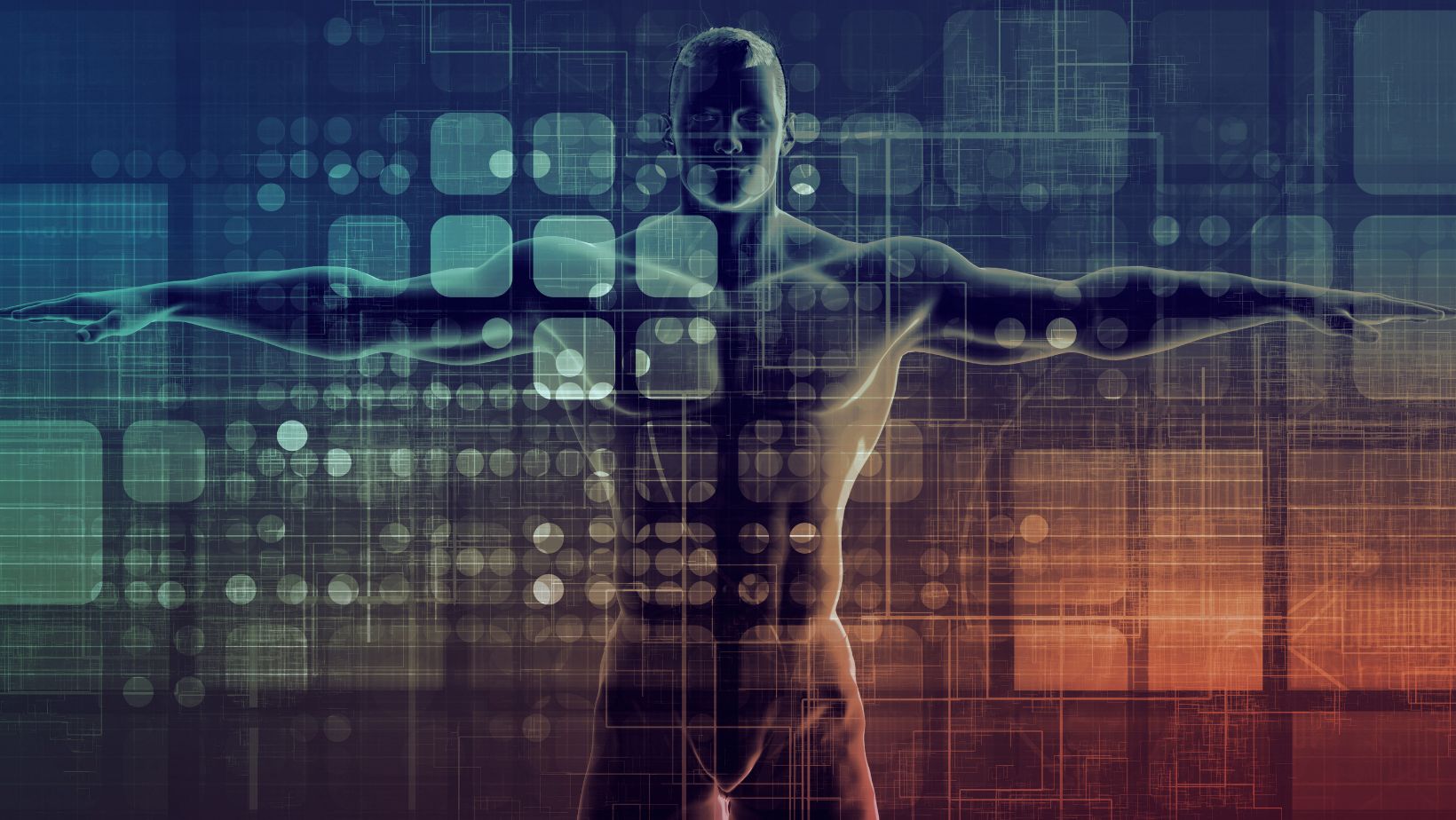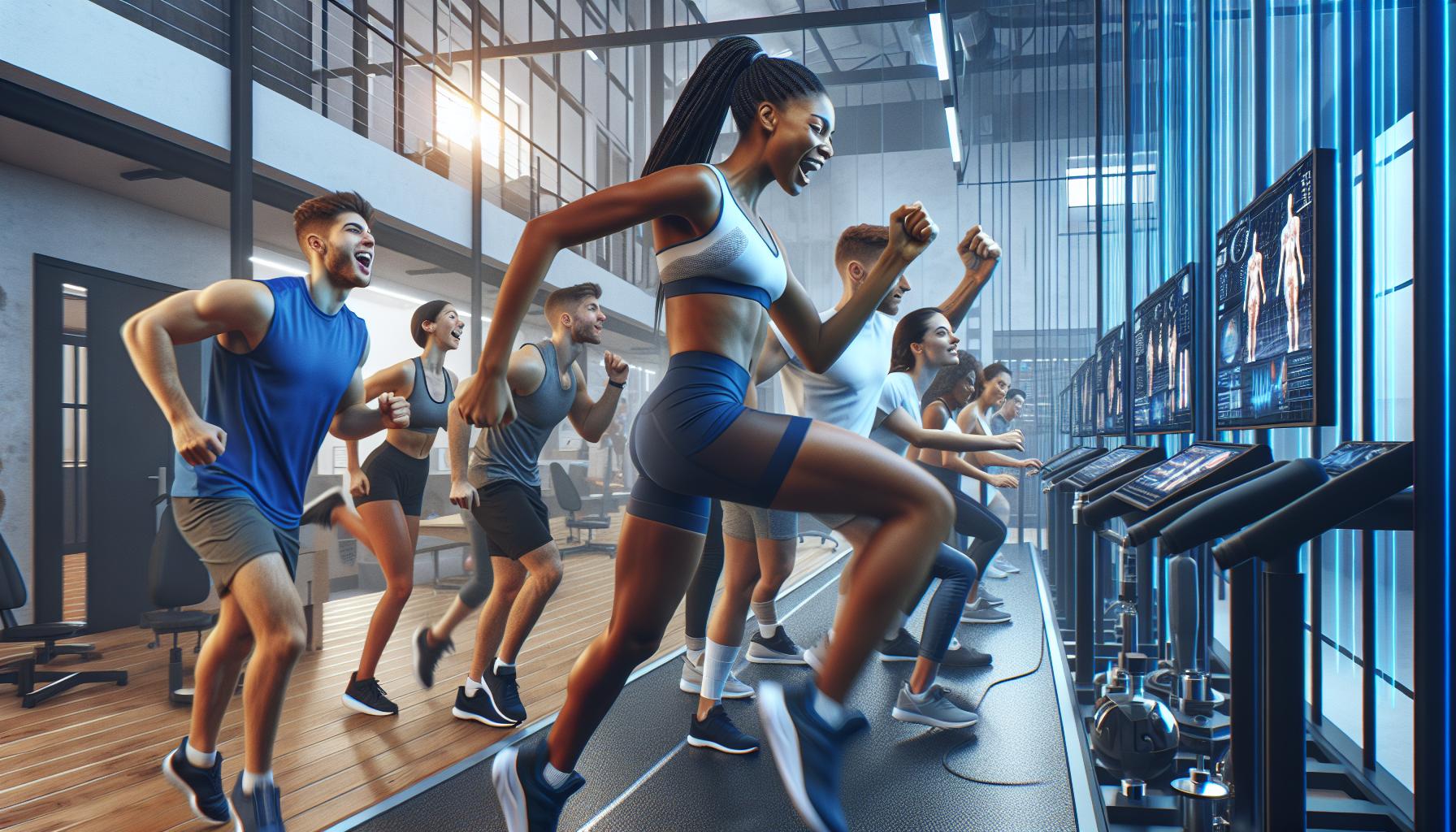As someone who’s spent years in the field of exercise science, I can tell you that pursuing a Master’s in Exercise and Sports Science opens up incredible career opportunities. This advanced degree combines cutting-edge research with practical applications in human performance, biomechanics, and sports nutrition.
I’ve seen firsthand how this graduate program equips students with specialized knowledge that’s increasingly valuable in today’s health-conscious world. Whether you’re interested in becoming a strength and conditioning coach, clinical exercise physiologist, or sports performance researcher, a master’s degree will give you the expertise to excel. From analyzing movement patterns to designing rehabilitation programs, you’ll develop skills that make a real difference in athletes’ and clients’ lives.
Key Takeaways
- A Master’s in Exercise and Sports Science combines advanced research with practical applications in human performance, biomechanics, and sports nutrition, typically requiring 30-36 credit hours to complete
- The program offers multiple specialization tracks including Clinical Exercise Physiology, Sports Performance, and Research Applied Science, with core coursework in exercise physiology, biomechanics, and research methods
- Career opportunities are diverse and growing, with a projected 19% increase in exercise physiology positions through 2032, offering competitive salaries ranging from $45,000-$120,000 depending on experience
- Program costs vary significantly, ranging from $15,000-$45,000 total, with various financial aid options available including assistantships, scholarships, and fellowships
- Leading universities require specific admission criteria including a bachelor’s degree with minimum 3.0 GPA, GRE scores, and relevant prerequisites in anatomy and physiology
Masters in Exercise and Sports Science
A Masters in Exercise and Sports Science equips students with advanced knowledge of human movement science applied to athletic performance optimization. This graduate program combines scientific principles with practical applications in exercise physiology biomechanics sports psychology.
Core Curriculum Overview
The core curriculum focuses on essential components of exercise science research methods. Students complete coursework in:
- Advanced Exercise Physiology: Cellular metabolism energy systems physiological adaptations
- Biomechanics Analysis: Movement patterns injury prevention mechanical efficiency
- Research Methods Statistics: Data collection analysis scientific writing
- Exercise Testing Assessment: Performance metrics evaluation protocols
- Sports Nutrition: Macro micronutrient needs performance fueling strategies
Specialization Tracks Available
Students select specialized concentrations aligned with career goals including:
| Specialization Track | Key Focus Areas | Career Outcomes |
|---|---|---|
| Clinical Exercise Physiology | Chronic disease management rehabilitation protocols | Clinical exercise specialist cardiac rehabilitation |
| Sports Performance | Athletic optimization training methodologies | Strength coach performance director |
| Research Applied Science | Laboratory testing movement analysis | Research scientist sports scientist |
| Exercise Leadership | Program design implementation education | Wellness director corporate fitness leader |
- Targeted coursework in specialization area
- Hands-on laboratory practicum experiences
- Research projects related to concentration
- Professional certification preparation
- Internship opportunities with industry partners
Career Opportunities With This Degree
 A Master’s in Exercise and Sports Science opens doors to diverse career paths in athletics performance optimization health care rehabilitation research. The advanced degree qualifies graduates for specialized roles across multiple sectors with competitive salary potential.
A Master’s in Exercise and Sports Science opens doors to diverse career paths in athletics performance optimization health care rehabilitation research. The advanced degree qualifies graduates for specialized roles across multiple sectors with competitive salary potential.
Sports Performance Coaching
Sports performance coaches with this master’s degree work in professional sports organizations collegiate athletic departments private training facilities. Their responsibilities include:
- Designing periodized training programs for athletes across different sports
- Conducting movement assessments using advanced biomechanical analysis
- Implementing recovery protocols based on physiological monitoring data
- Coordinating with sports medicine teams on return-to-play programming
- Managing strength conditioning programs for teams individual athletes
Athletic Training and Rehabilitation
Clinical positions in athletic training rehabilitation settings combine medical knowledge with performance expertise. Key roles include:
- Providing injury prevention programming in sports medicine clinics
- Developing corrective exercise plans for post-injury rehabilitation
- Conducting functional movement screenings assessments
- Working with physical therapists on advanced recovery techniques
- Leading wellness programs in corporate health centers hospitals
- Conducting research studies at university laboratories research institutes
- Teaching undergraduate courses in exercise science kinesiology departments
- Publishing peer-reviewed articles in sports medicine journals
- Securing grant funding for performance-related research projects
- Supervising graduate student research in biomechanics physiology labs
| Position Type | Entry-Level Salary Range (USD) | Experience Required |
|---|---|---|
| Performance Coach | $45,000 – $65,000 | 1-3 years |
| Clinical Specialist | $50,000 – $75,000 | 2-4 years |
| Research Assistant | $40,000 – $55,000 | 0-2 years |
| University Lecturer | $55,000 – $80,000 | 3-5 years |
Top Universities Offering the Program
Leading universities across the United States offer comprehensive Master’s programs in Exercise and Sports Science, combining academic excellence with cutting-edge research facilities.
Admission Requirements
Top institutions maintain specific admission criteria for their Exercise and Sports Science Master’s programs:
- Bachelor’s degree in Exercise Science, Kinesiology or related field with a minimum 3.0 GPA
- GRE scores (minimum 150 verbal, 150 quantitative)
- Letters of recommendation (3) from academic or professional references
- Personal statement highlighting research interests
- Resume detailing relevant experience in sports science, coaching or clinical settings
- Prerequisites in anatomy, physiology, biomechanics (minimum grade B)
Program Duration and Format
Universities structure their programs to accommodate diverse learning needs:
- Full-time format: 2 years (4 semesters) to complete 30-36 credit hours
- Part-time format: 3-4 years with flexible evening classes
- Hybrid options combining online coursework with in-person labs
- Summer intensive tracks available at select institutions
- Research-focused paths requiring thesis completion
- Applied tracks emphasizing practical experience through internships
| University | Location | Program Format | Credit Hours |
|---|---|---|---|
| UNC Chapel Hill | North Carolina | Full-time/Part-time | 36 |
| Boston University | Massachusetts | Full-time | 32 |
| Oregon State | Oregon | Hybrid | 45 |
| Texas A&M | Texas | Full-time/Online | 36 |
| Penn State | Pennsylvania | Full-time/Research | 30 |
Research and Practical Components
A Master’s in Exercise and Sports Science integrates hands-on research experience with practical field applications. These components provide essential skills through state-of-the-art laboratory work and real-world professional exposure.
Laboratory Experience
Advanced laboratory facilities equip students with technical expertise in biomechanical analysis, physiological testing and performance assessment. The lab work includes:
- Operating metabolic carts for VO2 max testing
- Using force plates for movement analysis
- Conducting EMG studies of muscle activation patterns
- Analyzing blood lactate responses during exercise
- Performing body composition assessments with DEXA scans
- Creating motion capture analyses for sports techniques
- 300-600 supervised internship hours at partner organizations
- Clinical rotations in rehabilitation centers
- Performance testing with collegiate athletic teams
- Research projects at sports medicine facilities
- Strength coaching apprenticeships with professional teams
- Exercise program design for special populations
- Data collection for ongoing sports science studies
| Practical Component | Duration (Hours) | Setting Types |
|---|---|---|
| Laboratory Work | 200-300 | University Labs |
| Field Studies | 150-200 | Athletic Facilities |
| Internships | 300-600 | Professional Sites |
| Research Projects | 100-150 | Research Centers |
Cost and Financial Considerations
A Master’s in Exercise and Sports Science represents a significant investment in professional development with costs varying across institutions and program formats.
Tuition and Program Fees
The average tuition for a Master’s in Exercise and Sports Science ranges from $15,000 to $45,000 for the complete program. Public universities typically charge $450-700 per credit hour for in-state students $850-1,200 for out-of-state students. Private institutions command higher rates of $900-1,500 per credit hour.
| Cost Component | Public University (In-State) | Public University (Out-of-State) | Private University |
|---|---|---|---|
| Per Credit Hour | $450-700 | $850-1,200 | $900-1,500 |
| Lab Fees | $200-500/semester | $200-500/semester | $300-800/semester |
| Technology Fees | $100-300/semester | $100-300/semester | $150-400/semester |
| Clinical Rotation Fees | $500-1,000/rotation | $500-1,000/rotation | $750-1,500/rotation |
Additional expenses include:
- Laboratory equipment fees for biomechanics testing
- Research software licenses for data analysis
- Professional certification exam preparation materials
- Clinical rotation placement fees
- Technology fees for online learning platforms
- Graduate assistantships providing $12,000-25,000 annually plus tuition remission
- Merit-based scholarships ranging from $5,000-15,000 per year
- Research fellowships offering $15,000-30,000 annually
- Professional organization grants from ACSM NSCA offering $1,000-5,000
- Department-specific awards for specialized research areas
- Federal student loans with fixed interest rates
- Employer tuition reimbursement programs covering 50-100% of costs
- Teaching assistant positions providing $3,000-8,000 per semester
Industry Demand and Job Outlook
The employment market for exercise and sports science professionals shows robust growth across multiple sectors. The U.S. Bureau of Labor Statistics projects a 19% increase in exercise physiology positions through 2032, surpassing the average growth rate for all occupations.
Key employment statistics in the field include:
| Position | Growth Rate (2022-2032) | Median Annual Salary |
|---|---|---|
| Exercise Physiologists | 19% | $49,860 |
| Athletic Trainers | 15% | $52,660 |
| Fitness Directors | 12% | $63,870 |
| Sports Scientists | 14% | $68,450 |
High-demand specializations include:
- Clinical Exercise Physiology for cardiac rehabilitation centers
- Performance Analytics for professional sports organizations
- Biomechanics Research for equipment manufacturers
- Strength Conditioning for collegiate athletic programs
Geographic hotspots for employment opportunities:
- California: 2,500+ positions in professional sports teams
- Texas: 1,800+ roles in university athletic departments
- Florida: 1,600+ openings in sports medicine facilities
- New York: 1,400+ positions in fitness corporations
Emerging industry trends creating new positions:
- Remote performance monitoring technologies
- Data analytics integration in sports science
- Personalized exercise prescription platforms
- Virtual reality training applications
Corporate partnerships enhance job prospects through:
- Professional sports team collaborations
- Healthcare system integration programs
- Fitness technology company initiatives
- Research institution partnerships
The competitive salary range varies by position and location:
| Experience Level | Private Sector | Academic Setting |
|---|---|---|
| Entry-Level | $45,000-$55,000 | $40,000-$50,000 |
| Mid-Career | $65,000-$85,000 | $55,000-$75,000 |
| Senior Level | $90,000-$120,000 | $80,000-$100,000 |
- Professional sports leagues (NBA, NFL, MLB)
- University athletic departments
- Corporate wellness programs
- Sports medicine clinics
Clinical Exercise Physiology
A Master’s in Exercise and Sports Science opens doors to dynamic career opportunities in athletics performance strength and conditioning and clinical exercise physiology. I’ve found that this advanced degree offers exceptional value through its blend of scientific knowledge and hands-on experience.
The combination of specialized coursework laboratory training and internship opportunities creates well-rounded professionals ready to excel in various roles. From sports performance coaching to clinical rehabilitation the field continues to grow with promising salary potential and job security.
I’m confident that for those passionate about human performance and sports science this master’s degree provides the perfect stepping stone to a rewarding career that makes a real difference in athletes’ and clients’ lives.

